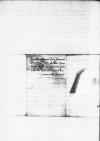List #185
Iustus Lodvicus DECIUS (DECJUSZ, DIETZ) do Ioannes DANTISCUSVenice, 1523-07-27
Rękopiśmienne podstawy źródłowe:
Pomocnicze podstawy źródłowe:
| ||||||||
Tekst + aparat krytyczny + komentarz Zwykły tekst Tekst + komentarz Tekst + aparat krytyczny
Excellentissimo domino
Salutem dico.
Quando ita fortunae visum est, ut vel in meo reditu tu abeas, vel Te adveniente ego discedam, aequo animo ferendum utrimque puto. Ego enim hoc huic sorti sum molestus quo tenaciorem amicitiae nostrae Te video. Pridie quam abieram, misi ad Te epistulam, qua meam in Te velim mentem intelligas. Nihil in Tuum ornamentum a me praetermissum est. Dilexi absentem amicum et magna expectatione venientem videre cupiebam. Iam oficium Tuum erit rebus meis vicisim Te accomodare. Sed res haec Tibi hoc facilior erit, quo minus ego praeter nominis mei commendationem ab amicis nunc aliquod egeo, verum ne omnino non fruar amici opera. Quo minus ipse indigeo, hoc magis pro aliis expostulo. Concessit ut spero illuc Gundelius doctor inter amicos eruditos non postremus, eum ego interim Tibi commendo et rogo ita fac, ut mea opera Tuam illi cognoscat accessisse amicitiam. Ego totum mihi factum putabo, quidquid illi per Te fiet, reddes autem Tuis amicis et communibus commendatum. Nolo hominis vitam depingere, erit tempus, quo ipse se nobis suo colore ac iustis lineamentis depinget. Fortunam suam satis amplam spero futuram, si ex me Te, ex Te deide


 AAWO, AB, D. 3, f. 4v
AAWO, AB, D. 3, f. 4v